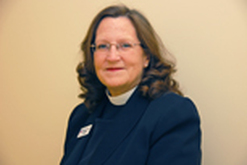 Thursday, January 31, 2013
Day 25 – Exodus 13-15; Psalm 21; Matthew 22
In an article in Psychology Today, Psychologist Ian Newby-Clark says he is often asked: “How many days will it take before my new exercise routine becomes a habit? My friends tell me it will take about thirty days, but I think it will only take 25. What do you think?"
So, here we are on Day 25 of the Bible Challenge? What do you think? How is your Bible Challenge going? Is routine reading of the bible a new habit for you? Have you adjusted an old habit of scripture reading to accept the bible challenge readings?
Psychologist Newby-Clark answers the question - how long to form a new habit - with the facetious description of a magical hidden lair where he goes to perform secret and specific calculations, emerging with the ‘aha’ answer of 23.638 days. If only the calculation were that easy, he admits. “Repeat, repeat, repeat”, he concludes, is the best strategy for acquiring new habits.
So, we press on with our Bible Challenge, reading stories that did not make it into the lectionary, hearing ‘the rest of the story’ behind heroes that we already knew.
We hear huge, familiar stories in Exodus today. The crux of the Exodus: six hundred thousand men (Ex 12:37) not counting the women and children… unleavened bread all they had time to take as the fled, unleavened bread to be eaten as a reminder to the next generations …“It is because of what the Lord did for me when I came out of Egypt.” (Ex 13:8) The people were led by the pillar of cloud by day and the pillar of fire by night. Pharaoh changed his mind and pursued. The Red Sea parted. Moses and Miriam sang. This story of salvation history is repeated at our Great Vigil of Easter, repeated throughout Judaism.
We hear the Greatest Commandment in Matthew 22: Jesus says, “You shall love the Lord your God with all your heart, and with all your soul, and with all your mind. This is the greatest and first commandment:. And a second is like it: You shall love your neighbor as yourself.’ On these two commandments hang all the law and the prophets.” This story of salvation history is repeated in all three lectionary years (Matthew 22: 34-40 in year A, Mark 12:28-31 in year B, Luke 10:25-28 in year C) and repeated in our hearts routinely.
We could almost stop reading here. We’d have some incredible practices to live by. These are stories we should ‘repeat, repeat, repeat.’
But we have this new Bible Challenge habit formed - and can’t wait for more of the story tomorrow!
The Very Rev. Kathleen Gannon
Curate, St. Paul’s Episcopal Church, Delray Beach, FL
Dean, South Palm Beach Deanery in the Diocese of Southeast Florida
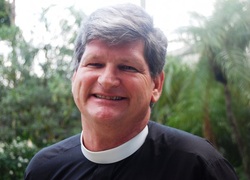 The Diocese of Southeast Florida
The Bible Challenge 2013
Day 24, Wednesday, January 30, 2013
Exodus 10-12; Psalm 20; Matthew 21
Exodus 10 opens with a troubling verse: “The Lord said to Moses, ‘Go to Pharaoh; for I have hardened his heart and the heart of his officials, in order that I might show these signs of mine among them, and that you may tell your children and grandchildren how I made fools of the Egyptians and what signs I have done among them – so that you may know that I am the Lord’” What’s troubling is God’s agency in this and other verses in this section of Exodus (7:3, 9:12). God is the actor. God does the “hardening” of Pharaoh’s heart. Why? Why not just say, “And Pharaoh’s heart was hardened?” as the text says in several places (7:13,14,22; 8:19) or stick with Pharaoh hardening his own heart as the text indicates in elsewhere (e.g. 8:15, 32,34)? After all, most of us understand that “power corrupts, and absolute power corrupts absolutely.” Pharaoh is clearly portrayed as a tyrant and tyrants by definition have “hardened hearts” through their own hubris. Why is Exodus so insistent that God is the agent of the hardening? In a note about this verse, The Oxford Bible Commentary observes “We may well wonder about why YHWH’s demonstrations of his power must be so violent and destructive. And why do they have to be repeated so often, with increasing destructiveness? The answer is right there at the end of every episode. Pharaoh fails to draw the right conclusion from his experience, so it needs to be repeated…” Okay, but if one accepts Exodus 10:1 (and 7:3 and 9:12) at face value, one has to ask how Pharaoh could possibly have drawn the right conclusion? After all, his heart was hardened by God! You see the problem. I’ve searched commentaries for a reasonable answer to this conundrum and I haven’t found one. My conclusion? The ancient writers were stuck with a rigid understanding of God’s omnipotence (God as “all powerful”), and had to account for this while at the same time accounting for Pharaoh’s tyranny. If God is absolutely omnipotent, then Pharaoh would not be able to resist God’s will if God didn’t want him to. Therefore, Pharaoh’s heart must have been hardened by God so that God could display his great power before the Egyptians and before the Hebrews. I don’t like it, but there it is. I would much prefer human free-will to be preserved and for God to have been portrayed as loving and increasingly persistent, hoping against hope that Pharaoh would do the right thing, even if that is rarely the case with tyrants (just look at Syria today!). But that’s not what Exodus says. Oh well, a more sophisticated theology will have to come later! Of course, if we identify with the oppressed Israelites, (or the oppressed of any age!) we have little problem with this partisan portrayal of God. Meanwhile, chapter 12 does include the great saving event for Israel, the Passover, in which God’s “destroyer” delivers death to the first born of Egypt and saves the Hebrews whose doors were marked with blood. As Old Testament scholar Terrence Fretheim notes in his commentary on Exodus, this account is a much a liturgy of the people designed for reenacting, repeating and remembering in later generations , as it is an attempt to provide an historical account of the events it portrays. It is the central liturgy and remembering of Jewish identity still today. As Fretheim writes, “In and through this ritual every generation of Israelites was the recipient of God’s exodus-shaped redemption. In every era, Israel confessed: God delivered us” (Fretheim, Terrence E. Interpretation: A Bible Commentary for Teaching and Preaching, Louisville: John Knox Press, 1991, p. 135.)
Psalm 20 is, as The Oxford Annotated Bible – Third Edition notes (New York: Oxford University Press, 2001 see Note for Psalm 20)), “a prayer for the king’s victory in battle.” Like the Exodus passage above, it is unapologetically partisan. The psalm is clear, the king may go into battle with all the arms and armor he wants, but if victory is to be realized, it will come because the Lord wills it, and not for any other reason.
Chapter 21 of Matthew is a complex of material: Jesus’ entry into Jerusalem, the so-called “cleansing of the Temple,” the strange incident of the fig tree, and a heated exchange with the Temple authorities that includes the telling of a provocative and inflammatory parable. The entire chapter is summed up pretty simply. It portrays a clash. Jesus enters the city as a victorious king, humbly, riding on a donkey (two animals if we are to take Matthew literally, which would be a little silly). Despite the fact that the entrance is peaceful and marked by the humility of a colt or a donkey rather than a steed, Jesus is in the position of a triumphant king. This will not endear him either to the Roman authorities or even to the Temple authorities who have brokered a tenuous peace with Rome that they do not wish to see upset by some Galilean troublemaker. Jesus is, however, moving forward with a different vision of God’s kingdom – one that is more concerned about the blind and the lame, about sinners, prostitutes and tax-collectors than it is about the self-righteous religious. If in the Exodus reading above, God’s saving activity is marked by exhibits of power and might, in this passage from Matthew, God’s saving ways are marked by a decided and determined procession to the Calvary and the cross. It is a quite a stirring contrast. How do you believe God saves?
The Rev. Canon Chip Stokes is Rector of St. Paul’s, Delray Beach.
 The Bible Challenge, Day 23: Exodus 7-9, Psalm 19 and Matthew 20
God charges Moses to ask Pharaoh to let the Israelites go from Egypt to worship God, their own God. God provides Moses with a side-kick, his brother Aaron as “a prophet,” a spokesperson to the people. God gives Moses and Aaron the miracle-working staff and promises that the very God who is commissioning them – the God of their forbears – will bring about this victory.
God backs up Moses’ words to Pharaoh with signs and wonders, but Pharaoh has a short-term memory deficit. As God inflicts one threatening occurrence after another on the Egyptians, Pharaoh retreats to a stubborn frame of mind. Any awe or terror he experiences vanishes like a vapor at dawn once the danger is over.
Psalm 19 declares that we understand God’s glory in the music of the (voiceless) spheres. Countless human beings have had the experience of discerning the presence of God in the beauty of this created world. Our diocesan boundaries of the ocean to the east and the Everglades or the Gulf to the west offer glimpses of these treasures in the first beams of the sun bursting over the horizon, mirror images of trees on the surface of lagoons, and a great variety of birds lifting their wings on the wind.
But we, like Pharaoh, struggle to hang onto our memories of God’s touching the world. At times we cling to our autonomy. And since the so-called Enlightenment at the end of the 18th century, human beings in Western Civilization have shared a need to figure God out. We do not want to be dumb sheep, blindly accepting anything, even the good message of Holy Scripture. Our craving for self-sufficiency can suffocate our soul.
Figuring out God is a daunting task. Even Jesus’ disciples, who walk with Jesus, cannot figure him out. When he speaks about his impending death in Jerusalem, two of his best friends approach Jesus – with their mother in the lead – to secure a prominent place for them in heaven after the fireworks are over. They think success is about power – that power that eventually cowed hard-hearted Pharaoh. But Jesus says life to the full is about service, pouring all our energy into work for the welfare of others. Jesus’ insistence on service is a sound bite worth remembering. A servant’s soul encounters miracles of mercy every day. That’s life!
The Rev. Jennie Lou D. Reid+
Rector, St. Faith’s Episcopal Church, Cutler Bay, Florida
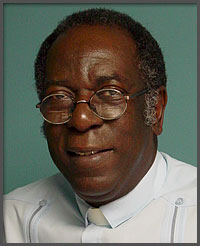 Exodus – Chapter 4 -6/Psalm 18:21-50/Matthew 19
As we read Psalm 18: 21-50, we come to a point where we wonder if we can really makes some of those words part of our prayer. From verse 37 to verse 42, especially we struggle to associate such statements with the gospel of love and forgiveness that our Lord proclaimed. This is a legitimate concern, however as we stand as God’s people in a pilgrimage towards a more perfect understanding of God’s will for us, we discover that we too, even as beneficiaries of Jesus epiphany still struggle with the depth and mystery of love. In his first letter to the Corinthians, chapter 13, verse 12, Apostle Paul states “at present we see in distinctly, as in a mirror but then face to face. At present, I know partially; then I shall know fully, as I am fully known.”
The children of Israel endeavored to walk in obedience with God, they enjoyed great victories over their enemies but did not yet understand that God also loves their enemies even if their deliverance is from that same God.
In Matthew’s gospel, chapter 19, Jesus said to those who state that Moses gave them permission to divorce, “Moses did so because of the hardness of your heart.” In other words, you were not really ready for that greater level of forgiveness, it would take them more walking with the Lord to grasp the message fully. Moses, for instance, dealing with a people who could be convinced only by the spectacular, had to perform the miracle of the staff changed into a snake. (Exodus 4:3-5) In spite of this, even Moses would hesitate to go to Pharaoh as God had ordered him using the pretext of his language impediment and other limitations.
As we walk with God, our faith sometimes falters and we think more about our limitations than God’s power to change water into wine; to calm the storm of our lives.
Let us continue to walk on the path that our ancestors have tread coming closer and closer to the marvelous light that “leads us amidst the encircling gloom” and pray in the words of this old hymn, “Lead thou my feet. I do not ask to see the distant scene. One step enough for me.” (Hymn Ancient and Modern)
The Venerable J. Fritz Bazin, D. Min.
Archdeacon for Immigration and Social Justice Ministries
Diocese of Southeast Florida
 Reflection for January 26 or Day 20
Exodus 1-3; psalm 18:1-20; Matthew 18
As we move from Genesis to Exodus, the biblical narrative takes an ominous turn--”Now a new king arose over Egypt, who did not know Joseph” (Exodus1:8). Joseph’s family, who had been welcomed into Egypt, they had even been hired to keep Pharaoh’s livestock. They had now multiplied with the passing years to the point where the Egyptians perceive them as a threat to homeland security. Sin being what it is, enslavement and infanticide -- the systematic murdering of all the male children -- ensue. (I find the events in Syria today, in which a country’s army has been turned against its own people, so distressingly similar.) God, however, is on the move. A Hebrew child, Moses, is drawn from water by Pharaoh’s sister and raised, as the Disney movie terms it, a Prince of Egypt. Fleeing Egypt as a fugitive for the killing (and unsuccessful coverup) of an abusive Egyptian guard, Moses finds himself in the land of Midian where he encounters God and God encounters him in the bush that was burning but not consumed.
God hears the groans of the suffering and exploited and God acts. God waits for Moses to take notice of the burning bush, and then God call Moses by name. This call is personal and full of purpose. Moses encounters God’s holy presence face-to-face. This is a humbling, knee bending, head bowing, sandals removing holy ground. Moses encounters the Source of all life, of all being. “I AM WHO I AM” is God’s response to Moses’ request to know God’s name. God’s purpose: Moses is to be the instrument by which God delivers the Israelites from slavery and forms them into a holy community.
Moses is not the only one saved from the water to be an instrument of God’s purpose. In Holy Baptism, we are drawn from the water, reborn by the Holy Spirit, and charged with a purpose -- to share in the work of “confessing the faith of Christ crucified, proclaiming his resurrection and sharing in his eternal priesthood” (BCP p. 308). This is personal. In baptism our name is spoken and we are sealed and marked as Christ’s own forever. At the heart of our holy and dynamic relationship with God exists the holy intimacy of God calling us, naming us, loving us and leading us to share in God’s work of liberating humanity from sin and slavery in all its forms.
Jesus in Matthew Chapter 18 teaches us that the practice of forgiveness is an essential way we live, act and interact as God’s people. The parable Jesus tells at the end of the chapter needs little interpretative analysis: we who are forgiven are called to practice forgiveness. This is the Jesus way.
The Rev. Andrew J. Sherman
Rector, St. Gregory’s Episcopal Church, Boca Raton
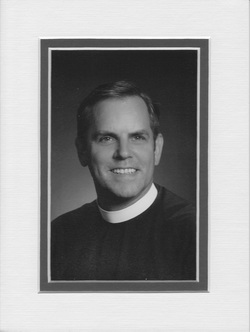 Day 19 – January 25, 2013
Genesis 49-50, Psalm 17, Matthew 17
Time is such a precious commodity. We all seem to realize that as we get older the faster time slips away. And time, unlike the resources of our treasures and talent, is never replenished. When it is gone, it is gone. As far back as I can remember, I have always had a fundamental passion to make the best of time, hoping and praying that opportunities were never forsaken that I would regret passing up to do as God would will it. I also wanted my time and moments to generate a sense of God’s will in my life and the beauty it can and will generate for me as well as others.
Jesus in our passage from Matthew is aware how time is passing as he for a second time reveals his impending fate. There is so much to teach the disciples, but so little time remaining. There is a need to cultivate faith within his followers that God’s presence may always be evident. And there is an urgency to enable the disciples to simply be agents of God’s grace in all that they say and do. Christ’s engagement in our lives raises the same concerns and urgency as we are asked to examine how we utilize our time: learning from the past, making the most of the present, and preparing for the future. How are we utilizing the precious commodity of our time for God’s purposes?
Enlightened further by the Genesis text, we may even be asking how would our life-long passage of time be remembered? What words would be said about us as to how we used our time? How did it impact the people who have crossed our paths and touched our lives? The consequences of what we do, good or bad, impacts the future. Likewise, our faithfulness and service to be as God desires will create a ripple of goodness for many generations to come.
The Very Rev. Dr. William L. Stomski,
Chaplain and Sacred Studies Educator, St Joseph’s Episcopal School, Boynton Beach,
Dean of The Diocesan School for Christian Studies, Episcopal Diocese of Southeast Florida
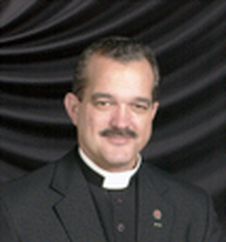 Thursday, January 24th Day 18: A Reflection on Mathew 16
“Get behind me Satan? What? You mean me? I just told you I’d fight to the death for you. I just named you the ‘Christ, the Son of the Living God.’ I have given up all to sit at your feet and learn from you. Get behind me… Satan?! You can’t be serious…” It seems reasonable that these, or similar, thoughts may have been running through Peter’s mind when Jesus abruptly put him in his place.
What could Jesus have been teaching Peter and the disciples? A tough lesson for sure. My thinking is Jesus knew that Peter would sacrifice his very life for Him. He also knew that Peter gave up much to follow his Lord. Jesus also knew that Peter was the “Rock”, the cornerstone of the Church, upon which His body would be founded. All of these and more were required of Peter. But, Jesus also knew that Peter was much filled with himself. He had yet to achieve that place of surrender. The surrender of his will to that of the will of Christ.
“(Peter) Do you want to be my disciple? If you do.., deny your self, take up your cross, and follow me… Peter, do you love me? Then feed my sheep. Feed my lambs.” Jesus was teaching Peter, the disciples, and untold followers throughout the generations, to stop doing what I think is best for God, and join God where God is already at work. This change cannot be accomplished without a cross.
Why the Cross? Why would any reasonable person want to willingly take upon themselves the suffering of a cross, metaphoric or real? The best answer I can wrap my heart around is that the Cross demonstrates God’s willing desire to love, beyond all cost. Yes, a folly for the Greeks and a stumbling block for the Jews. But what does the Cross say to our hearts, our minds? To what extent are we willing to surrender?
It says to me, God’s love requires turning from self motivated interests, even for the best of intentions. It requires turning from the desire to climb the ecclesiastical, or otherwise, professional ladder to boost our own sense of success, or pride. It requires turning from the pursuits of self-centered glory, prejudice, malice, hate, revenge and envy… You see, that’s what Jesus nailed there, on His cross. We are in turn to take up our own crosses that help us reject the works of darkness which have root within our hearts. And, in that transformation find the liberation of Love.
Christ calls us forward to feed His sheep and lambs. Our response, like Peter’s, requires that we sacrificially bare our crosses, dying to self, for love of Jesus, and follow Him.
The Reverend Bernard J. Pecaro,
Rector, St. Martin's Episcopal Church, Pompano Beach, FL
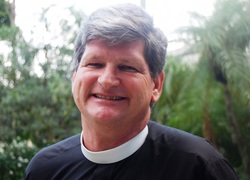 The Diocese of Southeast Florida
The Bible Challenge 2013
Day 17, Wednesday, January 23, 2013
Genesis 43-45; Psalm 15; Matthew 15
It’s unsettling when wrongs done years ago come back to bite you in a big way. The drama of the Joseph story comes to its climax in this section of Genesis in which the brothers discover that this powerful person, the number two guy in Egypt, second only to Pharaoh himself, is their little brother Joseph, whom they hated. This is the same Joseph whom they had thrown into a pit, sold into slavery, about whom they had lied to their father, inferring to their father that he had been killed by a wild beast, and providing evidence to back up their claim! They provided the colorful coat (or long-sleeved jacket) that Dad had given his pet because he loved him best, to their father, torn and stained with blood. “Dad, uh, do you recognize this?” What despicable behavior! What a shameful ruse! But now it all comes back to bite them! Oh what a tangled web we weave….
I appreciate that the Genesis account is not “black and white” in its portrayal of Joseph’s reaction to his brothers and their treachery. Joseph is, in my opinion, portrayed ultimately as a great man. In the end, he is able to resolve all of the anguish, suffering and pain he has endured at the hands of his brothers and of others, by seeing them in the bigger picture, by setting them in the broader, overarching scheme of God’s goodness and God’s providence. But before he arrives at that point, he has to “toy” with his brothers, play with their feelings and emotions, and put them through a trial and an emotional roller-coaster. How accurately Genesis often mirrors human behavior back at us. The climax of the story, when it comes in chapter 45, verse 1, is filled with grace, power and glory. “Then Joseph could no longer control himself….I am Joseph, your brother, Joseph, whom you sold into slavery. And now, do not be distressed or angry with yourselves because you sold me here [I’m not sure those are the emotions they were feeling. I suspect they were terrified!], for God sent me before you to preserve life…So it was not you who sent me here, but God.” Wow! It takes both great faith and strong character to figure that out. Joseph is an exemplar of understanding the presence of God in all circumstances.
Psalm 15 begins with a question: O Lord, who may abide in your tent? Who may dwell on your holy hill? It’s a rhetorical question, and the psalm writer offers the answer, “Those who walk blamelessly and do what is right…” Uh oh! The psalm is clearly contrasting virtue with wickedness and that is not unimportant. Still, who of us can say with confidence that we always “walk blamelessly” and “do what is right?” Always? We may try, but we often come up short. Thanks be to God that Paul came along and taught us that we are justified by grace through faith (Rom. 4:5). That doesn’t take us off the hook. We are still called to strive toward virtuous living. It does mean however, that when we fall short, God loves us anyway, and we are always welcome into God’s presence and home.
Matthew 15 presents one of my favorite exchanges in the New Testament. It is between Jesus and a Canaanite woman. This exchange comes on the heels of a debate between Jesus and a group of Pharisees and scribes who come from Jerusalem to challenge Jesus, and question why his followers break “the traditions of the elders.” Jesus’ reply to them, a quote from Isaiah, is pointed, and challenges the self-righteous religious of all ages, “this people honors me with their lips, but their hearts are far from me.” He then takes pains to explain to his disciples what’s important and what’s not. They don’t seem to get it. It’s after this that he travels to the district of Tyre and Sidon, outside of Jewish territory and comes across a desperate Canaanite woman in a situation filled with pathos. It appears she can’t get close to him, and shouts out, “Have mercy on me Lord, Son of David; my daughter is tormented by a demon.” Jesus response surprises most of us, I suspect. He ignores her. She keeps shouting, acting like a pest. His disciples urge him to send her away. He finally answers her, “I was sent only to the lost sheep of the house of Israel.” She kneels before him, “Lord, help me.” It’s a pathetic scene. Jesus says to her, “It is not fair to take the children’s food and throw it to the dogs.” That’s pretty harsh. But, God bless her, she loves her daughter and will not be dissuaded. “Yes, Lord, but even the dogs eat the crumbs that fall from their masters’ table.” What wit, and what boldness! I imagine Jesus paused for a moment, realizing that she had brought him up short. I wonder if he thought about his earlier exchange with the Pharisees and scribes, and had to rethink how he was holding on to a “tradition” at the expense of a person in real need. “Woman, great is your faith! Let it be done for you as you wish.” And her daughter was healed instantly. It appears that even Jesus could learn a new trick from an old dog!
The Rev. Canon William H. Stokes, Rector
St. Paul's Episcopal Church, Delray Beach, FL
 In today's Matthew reading we get two different banquets. The first banquet is Herod's. The second is Jesus' banquet. Herod's birthday banquet is not for the crows, who he fears. His banquet is for the invited guests and company. In contrast Jesus' feeding of the five thousand is a banquet for everyone. Herod's banquet features a young woman dancing, while Jesus' banquet's features healing. Sadly, Herod's banquet closes with the head of John the Baptist on a platter, while the feeding of the Five-Thousand ends with extra baskets of food and everyone having eaten. These are two strikingly different banquets. One is a model of greed, and the other is a model of Eucharist.
Similarly, we can contrast the actions of Joseph in meeting his estranged brothers with their treatment of him. As you may recall, Joseph dreams of greatness and then his brothers sell him into slavery. In today's reading Joseph interprets the dreams of the pharaoh and then goes about reconciling with his brothers. At first this reconciliation is hard to see. Why would he pretend he does not know them? Why would he set his brothers up for failure? It may be that Joseph is upset. However, it is more likely that Joseph is trying to get to know his brothers who he has not seen for over twenty years. Joseph places his brothers in character revealing situations so that he can learn about them. He learns about them so that he can orchestrate a robust and successful reconciliation. The proof of these intentions is in the chapters to come and is something to look forward to. Keep reading!
The Rev. Spencer B. Potter
St. Andrew's Episcopal Church
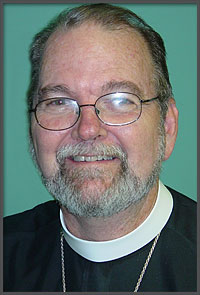 Daily Blog. Day 15 -- Genesis 37 - 39; Psalm 13; Matthew 13
“Listen: A sower went out to sow…”
Today we have 2 very familiar bible stories, Joseph and his unique robe; and the Parable of the Sower! Both speak to humankind’s struggle for fullness. Joseph, the favored son, learns – the hard way – to balance his God-given gifts with his own ego and perceived entitlement over his brothers. Jesus, with the Parable of the Sower, encourages us to ‘go deeper.’
As in Jesus’ parable the gifts given us can be lost on the path by ignoring them all together. Or, they can sprout too soon in shallow humility and cause us to be self glorified as in this initial introduction of Joseph. At other times our gifts can be choked by the cares, trials and tribulations of life as we see in Joseph’s continuing saga. But finally – hopefully – we find our depth and richness. We, like Joseph can go deeper. We can mature, grow, and live into our fullness recognizing and offering thanks for our God- given gifts. As Joseph’s story demonstrates his journey recognizes more and more that the gifts of his being are God’s. Joseph, growing into his own stewardship of the gifts bestowed upon him, becomes a great steward of God’s steadfast love and caring for himself, his own uniqueness, and all of God’s creation.
Pray that we too can recognize our own distinctiveness, overcome our shortcomings, plant ourselves in God’s richness.—and yield a hundredfold. “Let anyone with ears, listen!”
Archdeacon Tom Bruttell
|










 RSS Feed
RSS Feed